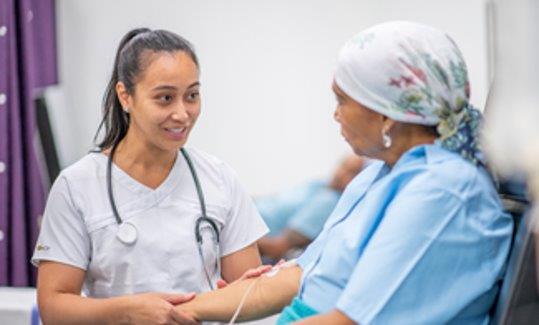Cervical Cancer Treatment









Did you know that cervical cancer is one of the leading causes of death among women worldwide? It's true, with almost half a million new cases diagnosed every year. But here's some good news: cervical cancer is preventable! By getting vaccinated and detecting it early, we can significantly reduce the risk of developing this disease. So, let's explore some of the most effective strategies for preventing cervical cancer, and how you can take control of your health to reduce your risk.
Here are some of the most effective preventivetips listed below:
Human papillomavirus(HPV) is a common sexually transmitted infection that can lead to cervical cancer. The HPV vaccine is a safe and effective way to protect againstthe most common strains of the virus. It's recommended that all boys and girls receive the HPV vaccine before they become sexually active.
A Pap test is a simple procedure that can detect abnormal cells in the cervix before they become cancerous. It's recommended that women begin getting regular Pap tests at the age of 21 or within three years of becoming sexually active, whichever comes first.
Practicing safe sex by using condoms can help reduce your risk of contracting HPV and other sexuallytransmitted infections. It's also important to limit your number of sexual partners and avoid sexual activity with anyonewho has been diagnosed with an STI.
Smoking has been linked to an increased risk of cervical cancer. If you smoke, it's important to quit as soon as possible. There are many resources availableto help you quit, includingnicotine replacement therapy, support groups, and counseling.
Maintaininga healthy diet and getting regular exercise can help boost your immune system and reduce your risk of developingmany types of cancer, includingcervical cancer. Aim to eat a diet rich in fruits, vegetables, whole grains, and lean protein, and get at least 30 minutes of moderate exercise most days of the week.
Practicing good hygiene is important for preventing many types of infections, includingHPV. Be sure to wash your hands regularly, especiallyafter using the bathroomor before preparing food. You should also avoid sharing personal items, such as towels or razors, with others.
Heavy alcohol consumption has been linked to an increased risk of cervical cancer. Limit your alcohol intake to no more than one drink per day for women.
Cervical cancer can sometimes run in families, so it's important to stay informed about your family history of cancer. Talk to your doctor about any familymembers who have had cervical cancer or other types of cancer, and whether you should consider genetic counseling or testing.
Remember, prevention is key when it comes to cervical cancer. By adoptingthese strategies, you can significantly reduce your risk of developingthis disease and stay healthyfor years to come.
Hyderabad - LB Nagar
Address: AMERICAN ONCOLOGY INSTITUTE
At Kamineni Hospitals
Inner Ring Rd, Sarvodaya Colony
Central Bank Colony, LB Nagar
Hyderabad,Telangana
Pincode – 500068
18002082000
contactus@americanoncology.com